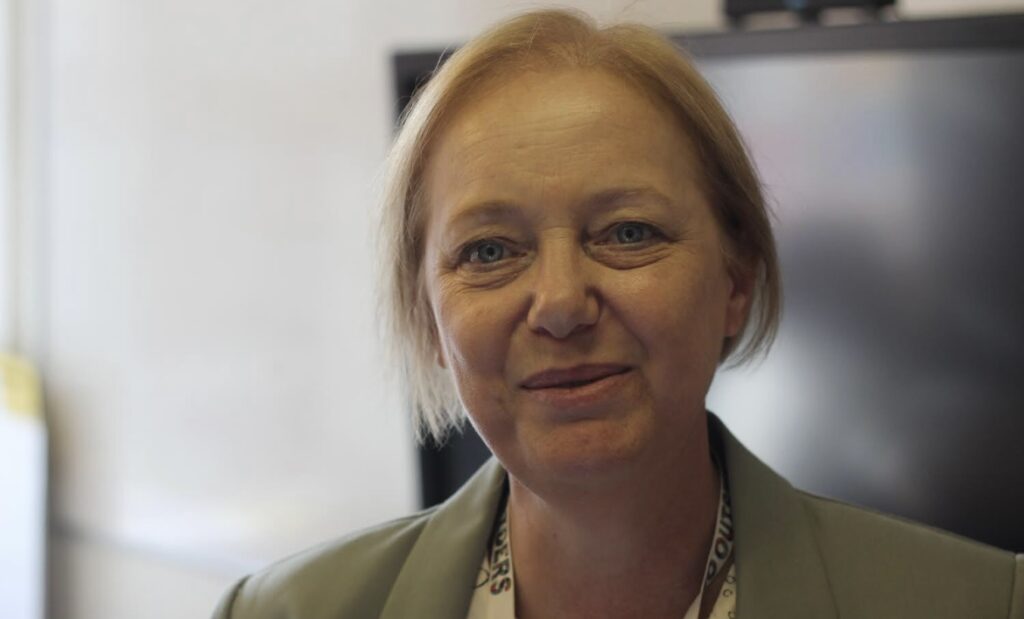Kier Starmer says ‘speaking skills key to breaking class barrier’

Here is Angela’s comment:
“As the oracy lead at the Excelsior Multi-Academy-Trust, I fully agree with Sir Keir’s proposals. Our children need explicit teaching of the oracy skills they will need to express their opinions and engage with others in the range of contexts they will encounter when they leave us. Only a progressive oracy curriculum, delivered in every lesson, and beyond in the classroom, will provide that. We believe we are doing this already and would strongly advocate for it to be recognised as a curriculum subject by Ofsted. The current speaking and listening guidance is too limited.
“Oracy is central to closing the disadvantage gap. Public speaking is taught and practiced so well in the independent sector and that’s what we’re doing in our schools. All children need to know their voice and valued. Unfortunately, it is a less of a priority in many state schools it is not currently a formal part of the national curriculum, making it difficult for these schools to focus on it. This is a great shame as all students deserve to benefit from these skills.
At Excelsior, we have a public speaking curriculum which runs from Early Years to Year 6 to ensure our children practise those skills for a range of audiences and purposes. The curriculum teaches our children to find their voice and speak up. This culminates in our public speaking competition Speak Up Speak Out, which is open to all Year 6 pupils and this year takes place at the Midlands Arts Centre in Birmingham on 7th July.”
Longer comment from Hazel Pulley, CEO:
“It is great to hear a politician recognise the importance of speaking and communication skills. At the Excelsior Multi-Academy-Trust we have long known that these skills are essential if a student is to succeed in life and reach their goals. Many independent schools make oracy a priority but this happens far less in state schools as it is not currently a formal part of the national curriculum, which is a great shame as all students deserve to benefit from these skills.
“Unfortunately, in the past politicians have paid little attention to oracy, it has been assumed that these skills will happen automatically. But they don’t. Students and parents need support to hone these skills and practise them. This has meant that schools like ours have to find other ways to help our primary students develop these important oracy skills. At Excelsior we believe good speaking and communication is so essential that we have made it our mission to ensure every student has a voice. We have a person appointed specifically as an oracy lead across our six schools. Parkfield Community Primary School is an Oracy Centre of Excellence, and two more of our schools are ready for assessment by Voice 21. In addition, we host the ‘Speak Up Speak Out’, an annual oracy competition to help teach and practice speaking and communication skills. The finals of this years’ ‘Speak Up Speak Out’ competition are taking place tomorrow (7th July) at the Midlands Arts Centre in Birmingham.
“At Excelsior, when we work with our students and parents, we use the Voice 21 and Oracy Cambridge framework. This identifies the different oracy skills our children need to develop. The skills apply in any language, so our parents can practice these at home confidently. This is a great framework, and we’d love to see if embraced by every school across the UK. Skills such as projecting your voice, making eye contact and turn taking are key skills for children to have before they start school. We know from personal experience that when a student masters good communication skills they do better in school and in life and strongly believe oracy should be a key part of the national curriculum. We therefore applaud Sir Kier for recognising this and committing to making it one of his five missions.”




